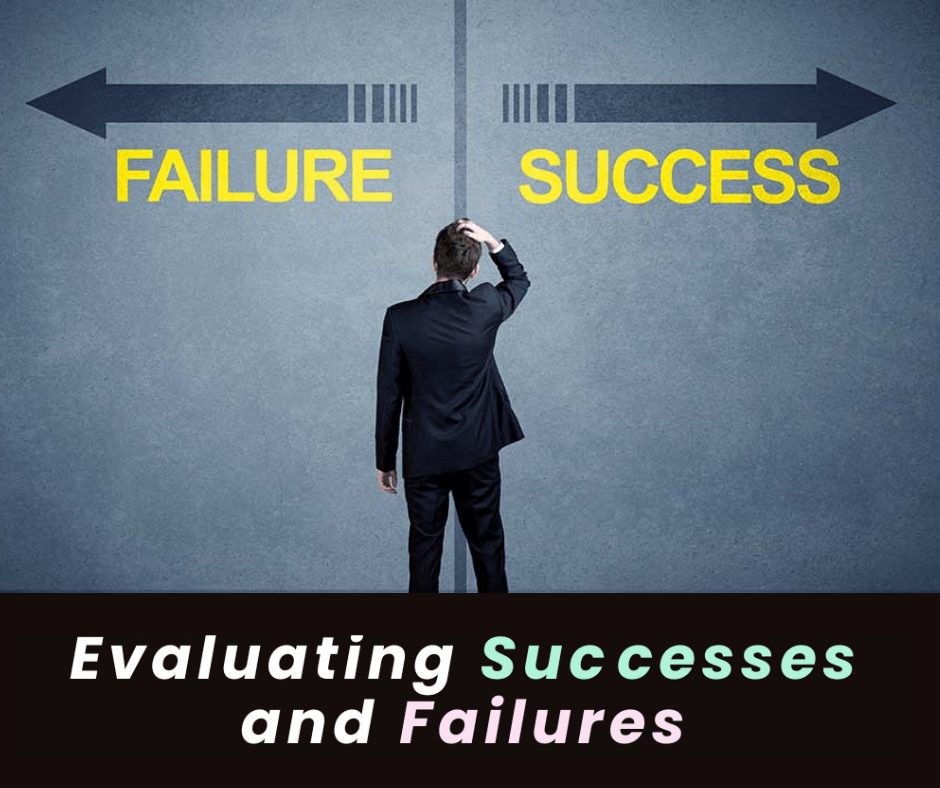Evaluating Successes and Failures

Performance management is one of the most important parts of any business. It involves assessing employee performance on an ongoing basis to ensure that the organization and individuals are meeting their expectations, goals, and objectives. By evaluating successes and failures within a company’s workforce, managers can identify what areas need improvement or further development to maximize productivity and efficiency. In this blog post, we will provide a comprehensive guide to help you understand what goes into successful performance evaluation processes, how best to assess everyone’s progress (both successes and failures) for positive outcomes, as well as why it's so important for organizations to accurately measure success criteria to stay competitive in their respective industries.
The first step in performance review is implementing a system that accurately measures an employee’s strengths and weaknesses. Defining clear metrics - such as sales targets or client satisfaction surveys - helps organizations set realistic goals for employees while also providing guidance when making assessments about improvements needed by individuals who don't yet meet predetermined standards of excellence. Additionally, basing performance evaluations upon actual accomplishments versus estimations ensures accuracy in your assessment process which encourages accountability across all departments.
When evaluating successes and failures within your staff members' performances it is essential to not only take note of quantitative statistics but qualitative insights too. Understanding the reasoning behind missed deadlines or unexpected wins allows managers/ supervisors proper insight into potential ways employees could be performing better overtime with adequate support whilst recognising outstanding contributions from those already exceeding expectations through detailed analysis and interpretation of distinct competencies. Taking time out during the assessment process should always be encouraged. Giving team-members the opportunity to discuss feedback (both good and bad) openly and free from judgment allows them time self-reflect thus improving motivation and confidence levels at work. This leads to more effective communication amongst personnel and creates a significantly more productive work environment.
Another important factor when evaluating success is understanding if training/development has played its part adequately enough. Companies should aim to promote change via upskilling existing workers by providing opportunities to acquire new skills relevant to roles they held. This brings positive advancements, ensuring employees feel supported in their managerial responsibilities. In addition, having frequent catchups allow senior management monitor progress while supporting colleagues to complete tasks successfully assists in building strong relationships between departments leading to improved communication, morale, and high level of collaborations over time.
Finally, perhaps most importantly, achieving optimum results in performance evaluation depends heavily upon company culture. Company culture plays a direct role here in encouraging employers to create open, honest, professionally engaging environment where everyone feels in safe discussing their opinions, ideas, which most times leads to the development of brilliant innovative solutions as opposed to when teams are performing under pressure. With the right company culture, the organisation can quickly adapt to and apply changes more efficiently than competition by leveraging the full potential of the organisation to propel itself to the next level.
Are You Looking for Ways to Improve Performance Management in Your Organization?
Nigerian Seminars and Trainings provide top-notch training programs for middle to senior level managers that teaches the latest advancements in performance management principles. At these training sessions, you will gain access to tools and resources that will help you create high-performance teams and develop creative solutions.
Our seminars are tailored specifically for your team's needs, allowing employees to gain a better understanding of how best to manage performance in their respective teams. Our professionals will equip participants with the skills required for successful performance management.
Don't wait any longer! Follow this link to sign up today and start improving performance management in your organization with our seminars and trainings.






0 Comments